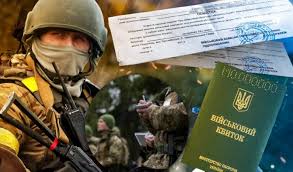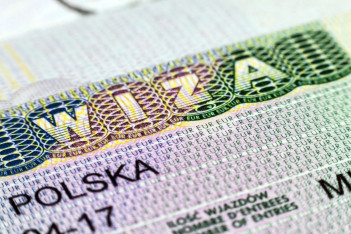TCC checkpoints even on the streets: possible scenarios of new mobilization after July 16.
In this article, we will consider what measures the state will take in relation to those who were obliged, but did not update information about themselves.
Increasing number of checkpoints
According to the law, which entered into force on May 18, fines are clearly defined for those who do not update their data. The summons will be officially sent to the registered address, which will lead to numerous legal cases against such violators.
Regarding the physical stop of conscripts, forced escorting for military registration is possible. If a person is wanted, the police have the right to administrative detention and forced delivery to the TCC for military registration.
Regarding the possibility of deprivation of the right to drive a vehicle: "The law provides for such a possibility. For this, you need to file a claim with the court after the evader does not receive a summons, does not appear when summoned, or administrative detention does not give results. Only after returning all answers to the TCC an application is submitted to the court for a ban on driving a vehicle."
Will the actions of the TCC and the police intensify after July 16 against persons who have not updated their data?
Large cities and districts will be divided into territories where TCCs will work. Taking into account the new changes, TCC employees will be able to serve summonses and check the presence of military registration documents. They are expected to be given enhanced powers and the process will be documented on video. In the news, you will be able to see information about the installation of roadblocks on the streets and in cities.
The role of lawyers in subpoena cases
Lawyers play an important role in subpoena cases, advising on rights and obligations, verifying the legality of documents and assisting in the preparation of required responses. They protect the rights of clients by representing their interests in court, challenging wrongful decisions and filing applications for deferrals or exceptions. In addition, attorneys prepare clients to comply with subpoena requirements, providing legal support and minimizing the risks of sanctions.
The importance of legal support when detained at a checkpoint
Legal support during detention at a checkpoint is critically important for protecting the rights of the detainee, ensuring the legality of the process and providing legal advice. The lawyer verifies the correctness of the documents, represents the interests of the detainee before law enforcement agencies, prepares and files complaints about rights violations, and also supports the client at all stages from detention to a possible trial. In addition, a lawyer provides psychological support, helping to reduce stress and anxiety arising from the detention process.
Topical questions and answers
Question
What rights does a person detained at a TCC checkpoint have?
Answer
Those detained at TCC checkpoints have the right to legal protection of their rights. They can demand from the law enforcement officers the presentation of documents confirming the legality of the detention and get legal advice about their duties and rights. Detainees are advised to immediately contact a lawyer who can ensure the protection of rights, verify the legality of detention, and provide assistance in case of violation of their rights.
Question
What actions should be taken if the summons was served incorrectly or with irregularities?
Answer
If the subpoena was served incorrectly or with irregularities, you should seek legal help to verify its legality. A lawyer can help in drafting a complaint for wrongful service, check the compliance of the document with the requirements of the law, and prepare a response to the subpoena to avoid fines or other negative consequences. A lawyer can also submit an application to the relevant authorities for correction of errors or further appeal.
Question
What can be the legal consequences of refusing to comply with the requirements at the TCC checkpoint?
Answer
Failure to comply with the requirements at the TCC checkpoint may result in legal consequences such as fines, administrative detention or other sanctions. A lawyer can help understand the potential consequences and prepare a legal strategy to minimize the negative consequences. He can appeal illegal actions or sanctions, as well as submit an application for review of the case in case of violation of rights.
Question
How can you appeal the decision made at the roadblock if it seems illegal?
Answer
In order to challenge an illegal decision made at a roadblock, you need to seek legal help. A lawyer can help in gathering evidence, preparing a complaint or statement to the relevant authorities, as well as representing the client's interests in court. A lawyer will help in evaluating the legality of a decision, drafting a lawsuit or appeal, and will provide legal protection during the trial.
With the entry into force of new legislative changes after July 16, TCC checkpoints, located even on the streets, will significantly strengthen control over conscripts. They will carry out inspections, serve summonses and check military registration documents. According to the new requirements, violators who have not updated their data can face numerous fines and court cases. In case of refusal to comply with the requirements at the checkpoint, administrative detention and deprivation of the right to drive a vehicle are possible. The importance of legal support in this context cannot be overestimated. Lawyers ensure the protection of the rights of detainees, check the legality of actions, help to appeal illegal decisions and provide legal support at all stages of the process. Seeking legal help is critical to effectively resolving any issues arising from being detained at a roadblock or receiving a summons. Seeking legal help is critical to effectively resolving any issues arising from being detained at a roadblock or receiving a summons. Military lawyer online, military lawyer, military lawyer, military lawyer, military lawyer, wartime lawyer, military lawyer Kyiv, lawyer in war.



































